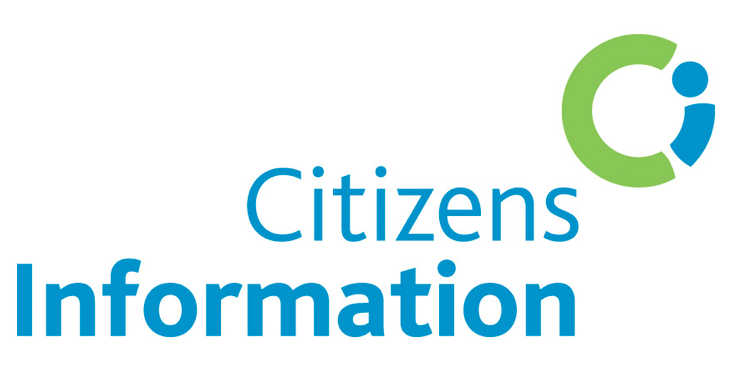 Know Your Rights has been compiled by Kerry Citizens Information Service which provides a free and confidential service to the public…
Know Your Rights has been compiled by Kerry Citizens Information Service which provides a free and confidential service to the public…
With State exams looming, many parents of secondary school students in the Leaving Cert cycle are thinking about the future and the likely costs that are coming. It is an exciting time but it can be a worrying time too, contemplating the additional financial burden, which can come with pursuing further and higher education. Today Ciara O’Gorman, Development Manager with South Munster Citizens Information Service outlines the main financial supports for students planning their next steps.
SUSI Grant
“So, the Student Grant Scheme is the main financial support scheme for students studying in Ireland and abroad. It is also known as the SUSI grant because the Student Universal Support Ireland (SUSI) is the awarding authority for the Student Grant Scheme” says Ciara. Student grants are divided into:
• Maintenance grants
• Fee grants
“Maintenance grants help students with their living costs. Fee grants pay tuition fees for students who do not qualify for the Free Fees Scheme. Fee grants can also pay the Student Contribution and the cost of essential field trips. If you qualify for the maintenance grant, you also get the fee grant but some people only get a fee grant.”
Continued below…
Student Grant Applications 2023-2024
Online applications for the student grant 2023-2024 closed on 2 November 2023. “Late applications are accepted in certain circumstances only” warns Ciara. To apply after the closing date, you must meet one of the following criteria:
Your course starts in 2024 and before the end of the 2023-2024 academic year
Extenuating circumstances affected your ability to apply before the closing date of 2 November 2023
Your circumstances have changed due to one of the following:
Reckonable income
Number of dependent children
Relevant person starting an approved course
Normal residence
Nationality or immigration status
Change of course or institution
To request a late student grant application, you must complete the Late Application Form 2023-2024 which is available on www.susi.ie . Email the completed form to lateapplications@susi.ie.
Student Assistance Fund
Other supports available include the Student Assistance Fund (SAF), which provides financial support to full-time or part-time students in higher education who are experiencing financial difficulties.
The SAF is available to help students with the following costs:
Books and class materials
Rent, heating and lighting bills
Food
Essential travel
Childcare costs for students that are parents
Medical costs
Family difficulties, for example bereavement
The SAF is designed to provide financial support in addition to the student grant. Tuition fees, registration fees, student loan repayments or any costs borne by your college are not covered by the SAF.
Continued below…

.
Participating colleges
Universities, institutes of technology and other approved colleges participate in the SAF scheme. You can look up our website www.citizensinformation.ie or contact your local Centre to get a full list of participating colleges. Unfortunately, the SAF is not available to students in further education or post-leaving certificate colleges. To qualify for the SAF, you must be a full-time or part-time student in a university, institute of technology or other approved college. You must be on a course leading to a higher education award (National Framework of Qualifications level 6-10).
Funding amounts vary and will be decided by your college following an assessment process.
How to apply
“Students must apply for the SAF directly to the individual colleges. If you are in financial difficulty you should contact the access or student services section in your college for more information on how to apply for the SAF. It really is important to apply for funding as soon as you can as some colleges have a closing date for applications. You should check with the access service or student services section of your college to find out when this is” says Ciara.
Your college will advise you on the documentation needed to support your application to the SAF. This may include proof of your own or your parents’ income and receipts for costs such as rent, bills or childcare.
Applications are assessed by individual colleges and final decisions on awards may be taken by a small committee, including the access officer and student welfare officer.
Fund for Students with Disabilities
The Fund for Students with Disabilities (FSD) is one of the main funding sources for students with disabilities. The fund ensures eligible students have the necessary help and equipment so that they can participate on an equal basis with other students.
“It is worth remembering that you may be entitled to support under the FSD even if you did not access college through the Disability Access Route to Education (DARE scheme).
The FSD covers the following supports:
Assistive technology equipment and software
Non-medical helpers (for example, personal assistants or notetakers)
Academic or learning support
Deaf supports including sign language interpreters and speedtext
Transport support
You can get more information on the supports not covered under the FSD on our website or by contacting your local Citizens Information Centre” advises Ciara.
Participating colleges
The FSD is available to full-time or part-time students in universities, institutes of technology and other colleges, including UK and EU colleges. The FSD is also available to students in further education or post-leaving certificate colleges. Funding is allocated to the college to support a student’s needs as decided by a needs assessment. The college is responsible for managing the funding and has full discretion on how the FSD is allocated.
Qualifying for the Fund for Students with Disabilities
To qualify for the FSD, you must fulfil the following conditions:
Have a disability in one or more of the categories outlined below
Meet the nationality and residency criteria outlined below
Be a full-time or part-time student
Have a verified need for specific supports in order to attend your chosen course
Qualifying disabilities
Disabilities that qualify under the FSD are:
Autistic Spectrum Disorder
Attention Deficit Disorder
Attention Deficit Hyperactivity Disorder
Blind or vision impaired
Deaf or hard of hearing
Developmental co-ordination disorder (dyspraxia/dysgraphia)
Mental health condition (for example bipolar disorder, schizophrenia, clinical depression, severe anxiety, severe phobias, OCD, severe eating disorders and psychosis)
Neurological condition
Significant ongoing illness
Physical or mobility
Specific learning difficulties (dyslexia or dyscalculia)
Residence
You must have been resident in the State for 3 of the previous 5 years before your approved course commences to qualify for support under the FSD. If you do not qualify at the beginning of your course, it is still possible to meet this requirement during the course of your studies. This should be reviewed at the beginning of an academic year.
Nationality and immigration status
In order to get the FSD you must be a national of an EEA member state or Switzerland, or have immigration status or leave to remain.
How to apply
“As you cannot apply directly to the FSD, applications should be made on your behalf by your college. Your first step is to register with the disability support services in your college. You will need to show medical verification of your disability (for example, a consultant’s report).
The college will then carry out a needs assessment to identify the appropriate supports required. You should contact the student services or disability office in your college for more information or you can check out www.studentfinance.ie”.
Bursary for Care Experienced Young People
The Bursary for Care Experienced Young People is available, if you have had care experience of at least 6 months before your 18th birthday.
You must be aged over 18 and not getting financial support for your education or training fees from SUSI, Tusla or any other source. However, you can still qualify if you are getting the aftercare allowance from Tusla.
The Bursary supports access to education and career development such as a new course or continuation on an existing course. The Bursary can help with course fees and anything that you need to participate on the course such as tools to complete an apprenticeship, laptop and printer.
You can find more information about the Bursary for Care Experienced Young People and an application form for the Bursary for Care Experienced Young People on the TUSLA website or by contacting your local CIC, where staff will be happy to help you.
Other bursaries and scholarships
The 1916 Bursary Fund provides funding to encourage participation and success by students from disadvantaged backgrounds that are significantly under-represented in higher education.
This usually means that you live in an area of urban or rural disadvantage where not many people from that area go on to third level education, you may have attended a DEIS school or your family income may mean that you may not be able to go to college without financial help.
The Department of Further and Higher Education, Research, Innovation and Science (DFHERIS) runs a number of scholarship schemes including the Third Level Bursary Scheme, the Ernest Walton STEM bursary, the Professor William C Campbell Bursary Scheme, the All Ireland Scholarship Scheme and the European University Institute Scheme.
• For anyone needing information, advice or have an advocacy issue, you can call a member of the local Citizens Information team in Kerry on 0818 07 7860, they will be happy to assist and make an appointment if necessary. The offices are staffed from Monday to Friday from 10am to 4pm. Alternatively you can email on tralee@citinfo.ie or log on to www.citizensinformation.ie for further information.
………………………………………………………………………………………………………………………………………………………………………………………………………………………………………………………………………………………………………………………………………………………………………………………………………………………………………………….











